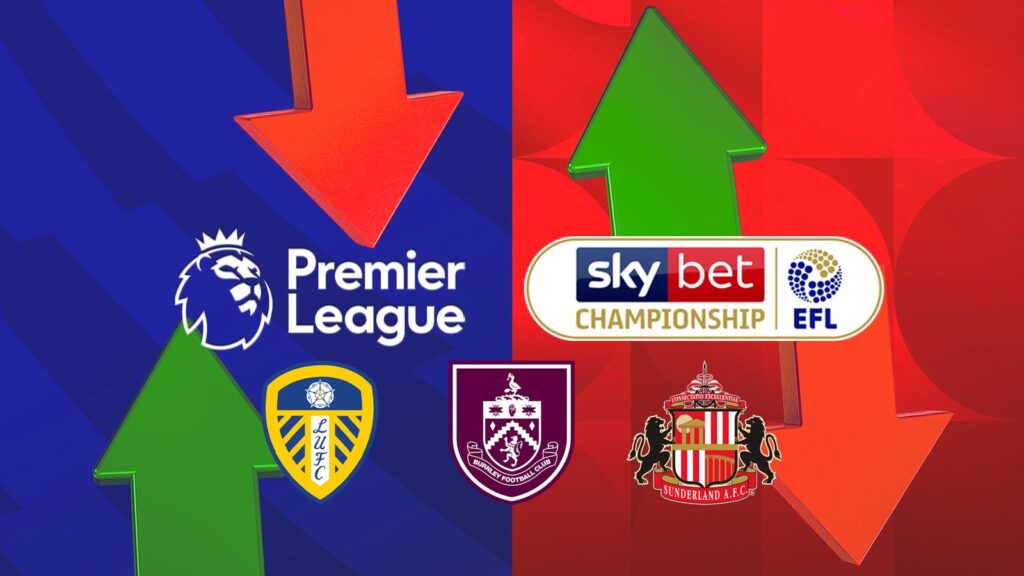BEATING GOLIATH WITH MARGINAL GAINS
If you’re David and you go toe-to-toe with Goliath, the likelihood is you will lose.
But in the Premier League, marginal gains have helped redress the balance for the newly-promoted sides.
Back in 2021, Brentford made their Premier League debut and their head coach Frank had two key tips.
The first? “Big focus on set pieces,” he tells Sky. “That’s an easy win, and it’s not easy to do it.
“Of course we did other bits: we also played still. But we had to nail that, and that was the non-negotiable for four years.”
Set-pieces of course mean corners and free-kicks but Brentford have taken marginal gains to a new level in the last two seasons. Last term, they scored the most goals from long throw-ins – and even netted from kick-off routines.
The data supports Brentford’s focus here. Over the last two seasons, the teams who have been the worst at defending set-pieces tend to underachieve. And if you’re a newly-promoted side, that means going down.
It’s the same at the other end of the pitch. The newly-promoted sides with the worst attacking numbers from set plays also booked themselves a relegation ticket.
Despite the gap in open-play intensity between the Premier League and Championship, set-pieces can pave the way for a more level playing ground – and this summer, newly-promoted Leeds have gone to new levels to maximise their chances.
In the transfer market this summer, the Yorkshire side have made a point of only signing players 6ft and above – with set-pieces very much on the mind of their head coach.
“It’s not a coincidence,” said Farke. “We are more likely to need to score goals from set-pieces because I’m not sure if we can dominate games the way we did in the Championship.
“They are all really good footballers. We don’t want to play basketball with them. They fit with what we want to do and they add a special physicality.”
Frank’s second top tip?
“The fitness – we had to be very fit,” he says.
Opta’s running numbers reveal that the majority of teams who have failed to keep up with the Premier League’s levels have ended up relegated. One of the exceptions to that is Nuno Espirito Santo’s Nottingham Forest, who reached Europe last season with the Premier League’s fifth-lowest tally.
Those who have played the Premier League have realised the importance of fitness.
“You have to train yourself physically to be ready for what the Premier League demands,” says Burnley captain Cullen looking back on their relegation season two campaigns ago – his debut top-flight campaign.
“I think the learnings are that the game’s played over 90 minutes. We started a lot of games really well, especially early on in the season. And then come the back end of the games, we struggled physically to cope with the demands of the Premier League.
“When you get tired and teams are changing their tempo against you and you come up against very good athletes in your position, it can get tough.”
Coming into the Premier League, you can be met with a whole load of issues. Injury issues, a difficult first 10 games from the fixtures computer – or even just bad luck.
But there are factors which can be controlled – in perhaps one of the most uncontrolled environments.
THE SURVIVAL FORMULA
To Leeds, Burnley and Sunderland, Sky Sports’ learnings from those who have come before are:
· Have you planned for this? If you have, stick to the plan…
· … but if you haven’t, that’s fine. Spend big, but spend it wisely
· Bring in Premier League quality…
· … that’s because you need players used to the speed, fitness and the intensity
· Score at least 43 goals and try to concede under 60…
· … nailing set-pieces may help that.
· Retain identity but be pragmatic. Respect the level. Or else.

